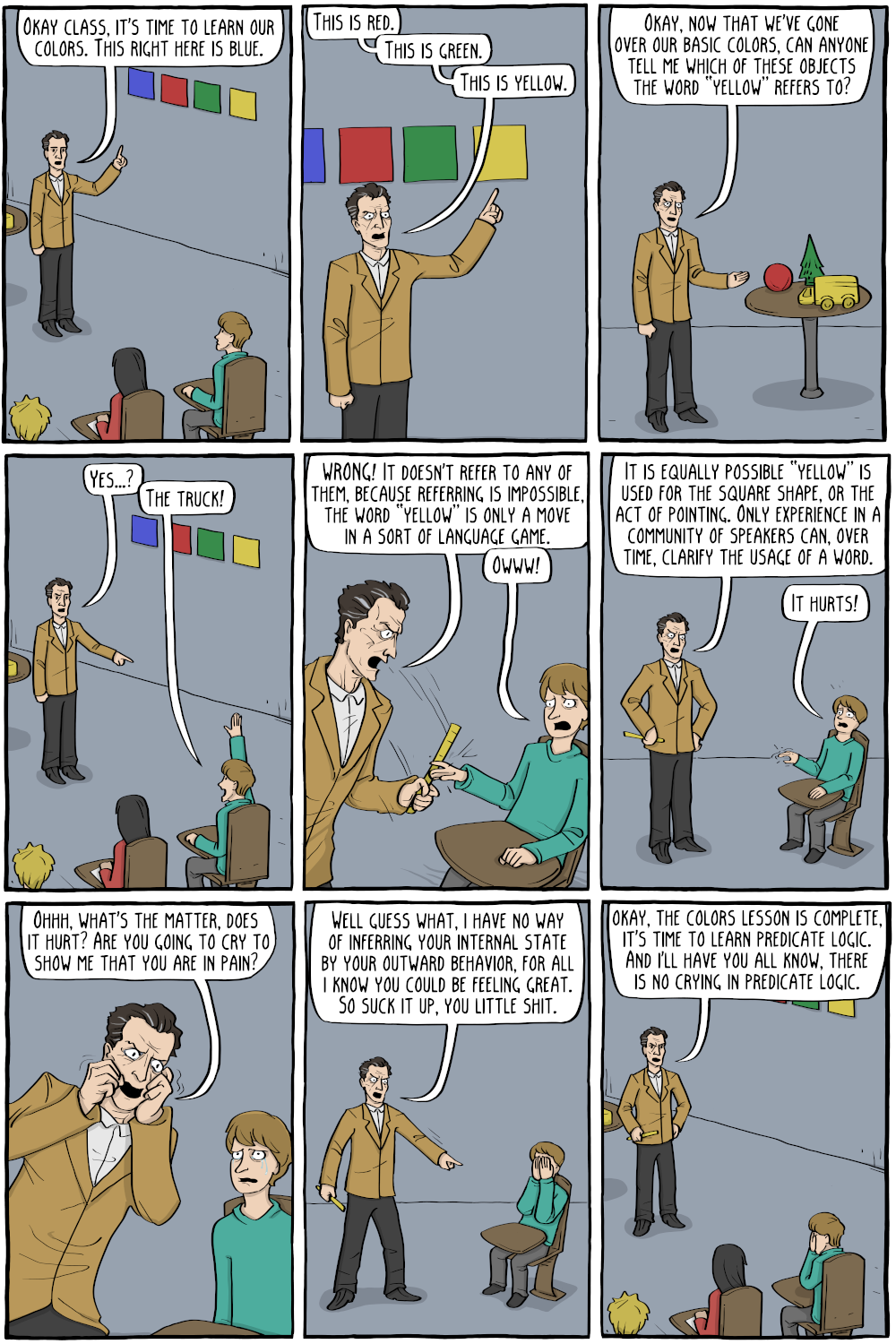Ironically, from an etymological point of view, it is not the second morpheme of
woman that should be construed as the sexist one. In Old English,
man simply denoted a person, of either sex. The prefix
wo in
woman derives from Old English
wyf [= a female human being; hence modern English
wife]. Like its counterpart, the prefix
wer [= a male human being],
wyf was added to the stem
man only when it was necessary to distinguish between the sexes. Over time however, the
wer prefix was dropped when referring specifically to a male of the species, so that in effect, the word
man became both hypernym
man – a human being – and hyponym
man – a male human being. The male of the species thus became the
canonical form, or
archetype, whilst the female, still tied to its
wo prefix, a subordinate, derivative form.



